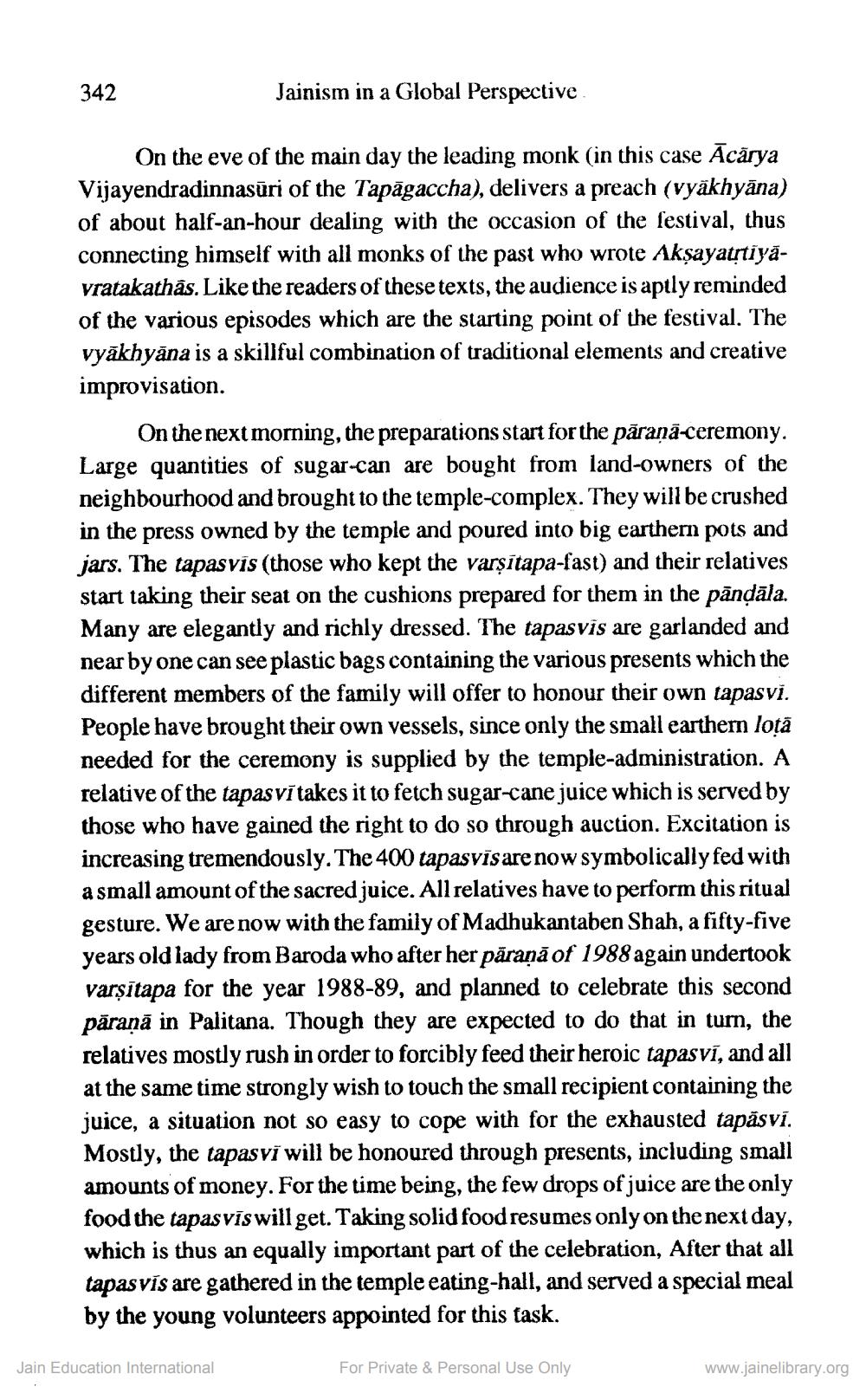________________
342
Jainism in a Global Perspective
On the eve of the main day the leading monk (in this case Ācārya Vijayendradinnasūri of the Tapāgaccha), delivers a preach (vyäkhyāna) of about half-an-hour dealing with the occasion of the festival, thus connecting himself with all monks of the past who wrote Akşayatrtiyavratakathâs. Like the readers of these texts, the audience is aptly reminded of the various episodes which are the starting point of the festival. The vyākhyāna is a skillful combination of traditional elements and creative improvisation.
On the next morning, the preparations start for the päranā-ceremony. Large quantities of sugar-can are bought from land-owners of the neighbourhood and brought to the temple-complex. They will be crushed in the press owned by the temple and poured into big earthern pots and jars. The tapasvis (those who kept the varșītapa-fast) and their relatives start taking their seat on the cushions prepared for them in the pāndāla. Many are elegantly and richly dressed. The tapasvīs are garlanded and near by one can see plastic bags containing the various presents which the different members of the family will offer to honour their own tapasvi. People have brought their own vessels, since only the small earthern lotā needed for the ceremony is supplied by the temple-administration. A relative of the tapasvītakes it to fetch sugar-cane juice which is served by those who have gained the right to do so through auction. Excitation is increasing tremendously. The 400 tapasvīsare now symbolically fed with a small amount of the sacred juice. All relatives have to perform this ritual gesture. We are now with the family of Madhukantaben Shah, a fifty-five years old lady from Baroda who after her pāraņā of 1988 again undertook varsītapa for the year 1988-89, and planned to celebrate this second pāraṇā in Palitana. Though they are expected to do that in turn, the relatives mostly rush in order to forcibly feed their heroic tapasvī, and all at the same time strongly wish to touch the small recipient containing the juice, a situation not so easy to cope with for the exhausted tapăsví. Mostly, the tapas vi will be honoured through presents, including small amounts of money. For the time being, the few drops of juice are the only food the tapasvīs will get. Taking solid food resumes only on the next day, which is thus an equally important part of the celebration, After that all tapasvís are gathered in the temple eating-hall, and served a special meal by the young volunteers appointed for this task.
Jain Education International
For Private & Personal Use Only
www.jainelibrary.org




